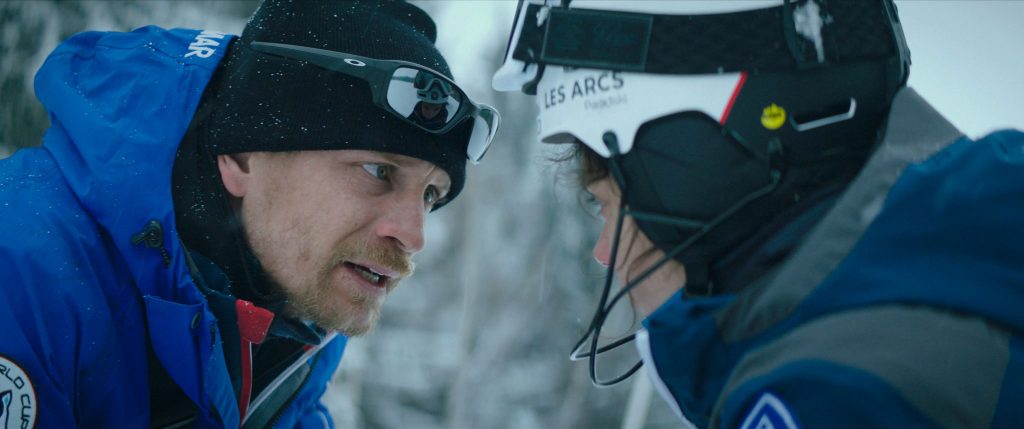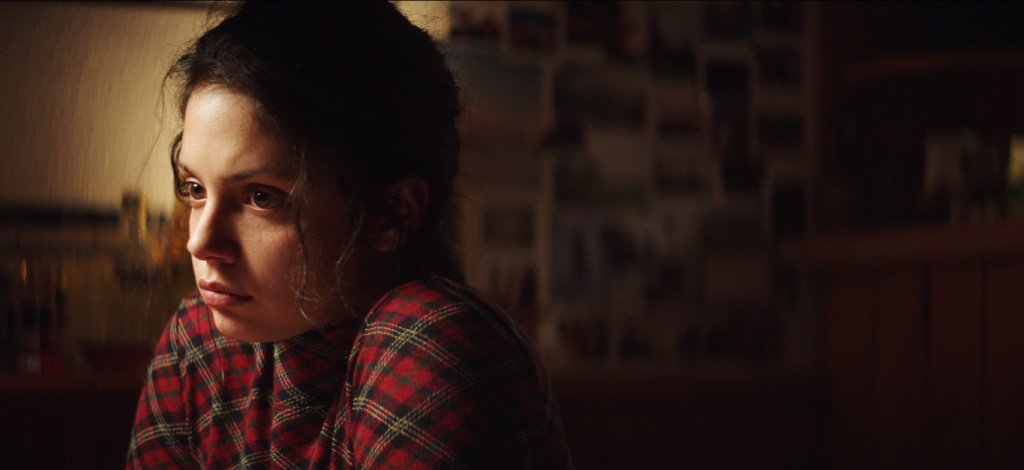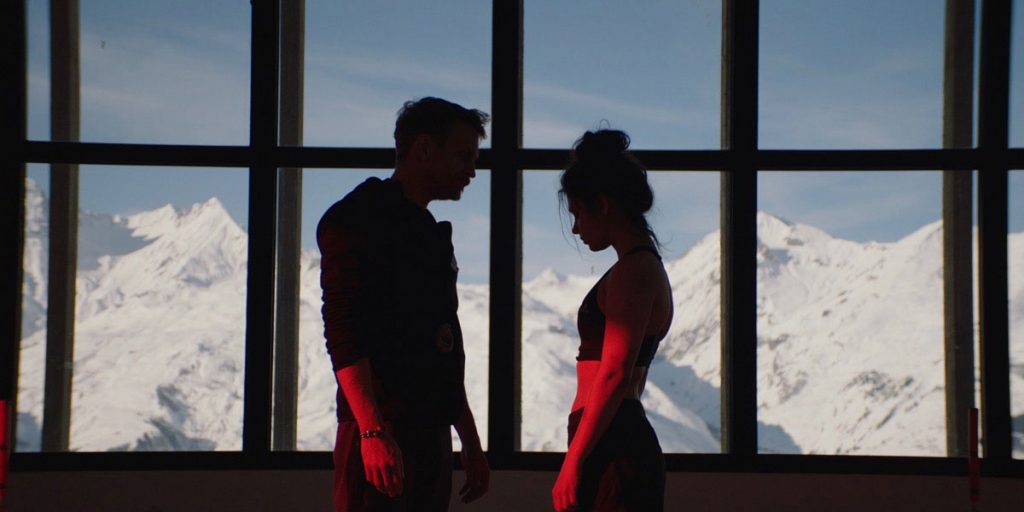In Slalom, writer-director Charlène Favier tackles sexual abuse in sports, taking us on an intimate journey with a young skier who finds peace by learning to say “no”.
A few years before the release of Slalom, ever since the #MeToo movement shone a spotlight on sexual violence and sparked a much-needed conversation on just how widespread a problem this is, many on-screen representations of trauma and abuse have started to emerge. From Kitty Green’s powerful sexual harrassment drama The Assistant and Emerald Fennell’s groundbreaking rape-revenge film Promising Young Woman to TV series like A Teacher, Big Little Lies, The Morning Show, and Normal People, many filmmakers have successfully explored issues of consent, gender norms, toxic masculinity, predatory behaviour, sexual harrassment, manipulation, and abuse.
But what makes all these films and shows resonate so strongly with so many viewers isn’t just the nature of the themes they explore, but also the fact that the perpetrators of the abuse aren’t always portrayed as boogeymen. Many times, the abusers have also been victims of trauma, and their behaviour is the result of more violence and abuse they, too, experienced: though their actions are wrong and can never be condoned, they also deserve compassion. These are the kinds of films that usually affect us the most — intimate dramas that don’t sensationalise the abuse, not shying away from making us uncomfortable but also choosing to focus on the long-term effects on the victims rather than judging the perpetrators.
Charlène Favier’s feature-length directorial debut is one of those movies. Officially selected for the Cannes Film Festival 2020 and originated from the director’s own experience of “someone having [had] a hold over [her] in a sporting context”, Slalom is a very personal film for the filmmaker, who grew up in the Val-d’Isère, on the French Alps, and who also used to ski competitively. The film revolves around a fifteen-year-old student named Lyz (Noée Abita, of Léa Mysius’ Ava) who is training to be a professional athlete at a highly selective ski club on the Alps, where she is required to undertake a strict training routine while also studying to maintain her high school grades. Lyz’s hard work and determination pay off, and strict but charismatic skiing champion-turned-coach Fred (Jérémie Renier, of In Bruges and L’Amant Double) soon dedicates all his time to her, making her his shining star regardless of her lack of experience, and devoting many hours to preparing her for the upcoming competitions.

As Frank’s training becomes more intense, both physically and emotionally, Lyz finds herself having to withstand an enormous amount of pressure completely on her own, as not only is her mother — the only family member who is usually present for her — unable to live with her in the Alps because of work commitments, but her training schedule, as well as her closeness to Frank, often prevent her from bonding with her schoolmates, who are also her skiing competitors. Lyz’s professional career soon takes off, as she is given a sponsor and she begins to collect trophies, but Frank’s attentions also become less professional, making it even harder for Lyz to survive the pressure and also find her own identity when the only adult in her life is manipulative and abusive.
Though Slalom‘s subject matter is not unfamiliar, as the theme of sexual harrassment in sports has been approached many times, what makes it such a remarkable drama — even more so considering it’s a debut — is that, though it features many uncomfortable depictions of grooming and abuse, it never gives us the satisfaction, as viewers, of letting the sexual violence dominate the narrative. Slalom is first and foremost the story of a young athlete who’s still growing up, and who finds her identity throughout the film despite the harrowing things that are happening to her. Over the course of the movie’s runtime, not only does Lyz go through a myriad of emotions, resulting from traumatic experiences she’ll carry with her for her entire life, but she finds peace in a way that’s entirely her own, ultimately earning the freedom she longs for by refusing to be manipulated, learning to say “no” and rewriting her own narrative.
As Lyz experiences rage, pain, anger, confusion and even, at times, happiness, we are right there with her. Favier makes it easy for us to identify with her protagonist, the camera often staying on her face for a little longer than it should, offering us a glimpse of her emotions. Credit is due to cinematographer Yann Maritaud (Train Station) for the film’s impressive visuals, with desaturated hues and soft lighting that make the beautiful landscape of the Alps even more striking, giving the film an almost otherworldly, dreamlike quality. Slalom‘s score and sound design (Gauthier Isern, Louis Molinas and Thomas Besson) effectively increase the distance between Lyz and the rest of the world, highlighting how alien and unreal her surroundings feel, in the wake of her recent experiences.
Noée Abita, who was 21 years old when the film was shot, is astonishing in what is an exrtremely demanding role, both physically and emotionally. The actress masterfully conveys all the unpleasantness of the situation, as well as the resilience of a character who doesn’t get to have closure, and who endures the violence, survives the abuse and ultimately, inevitably, grows up, completely on her own. Jérémie Renier, too, doesn’t shy away from delving into uncomfortable territory, showing an incredible commitment to the role and convingingly bringing to life scenes that can’t have been easy to shoot while never failing to preserve Frank’s humanity.

Just like Lyz, Frank, too, undergoes a series of emotions, and this is reflected in his behaviour. If, at first, the coach would appear to have taken an interest in Lyz because of her talent and potential, it’s not long until we begin to notice a series of odd, disquieting habits, like his interest in Lyz’s menstrual cycle and body weight, or his tendency to be a little too touchy-feely and a lot more undressed than the usual trainer would be. As Lyz’s confusion mirrors our own, the tension builds up, and the line between romance and abuse grows thinner, delving into extremely delicate territory that is bound to make some viewers question their own emotions towards two characters whose chemistry is, at first, undeniable.
But this is exactly the point of Slalom, as Favier’s strong screenplay delicately, but unmistakenly, shows us what to feel, never condoning Frank’s behaviour but also directing our attention onto Lyz, and Lyz alone. When boundaries are crossed, the gravity of the abuse becomes all-too-evident, and the film immediately assumes a different tone. Both actors are exceptional at bringing to life the film’s most triggering scenes, Abita’s Lyz never failing to show us that she is terrified, in pain, and not for one second enjoying the abuse, and Renier’s Frank depicting the same kind of “complex broken” as Michael Fassbender’s Conor in Fish Tank — another extremely flawed, unhappy character who makes incondonable mistakes and is then consumed by guilt and regret.
Slalom‘s secondary characters are neither essential to the narrative nor well-rounded, as Lyz’s best friend Lilou (Marie Denarnaud) and teammate Maximilien’s (Axel Auriant) romantic interest in her would appear to serve the screenplay more than it does the characters’ real motivations, and that is a missed opportunity. Yet, given both the film’s controversial subject matter and the semi-autobiographical events behind it, not only is the lack of characterisation of Lyz’s teammates understandable, but it does not impact the strength of the film’s message and the quality of its main performances. It’s thanks to Abita and Renier that Slalom works, its multifaceted, authentic protagonists never failing to make us go through a rollercoaster of emotions, while raising awareness on the timely issue of sexual violence in the world of sports. Both incredibly affecting and surprisingly intimate, Slalom is a striking, remarkable drama, and an impressive debut from a director to keep an eye on.
Slalom opened in virtual cinemas in the US on April 9, 2021. A Kino Lorber release, the film is now available on digital and home video, from Kino Lorber.

